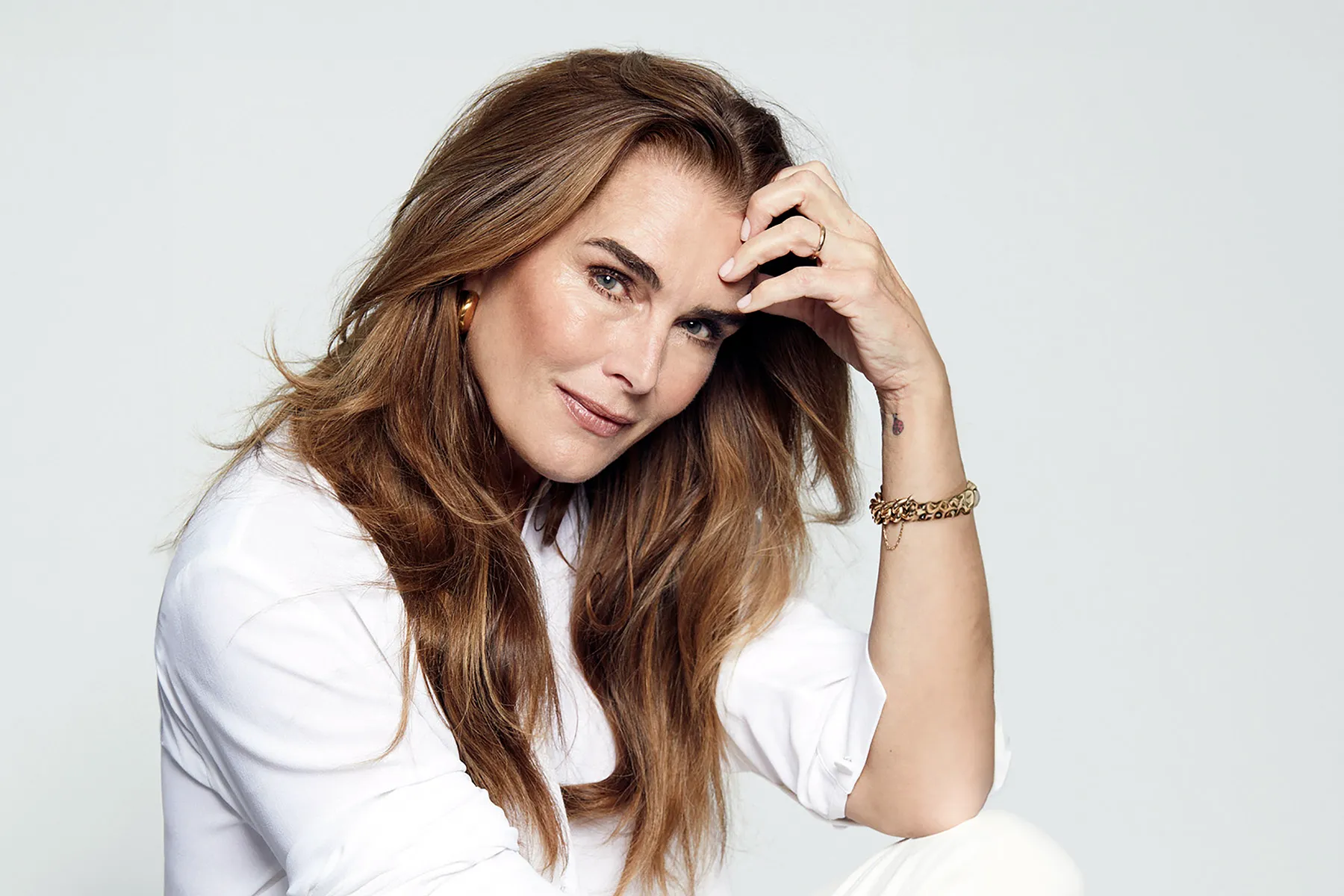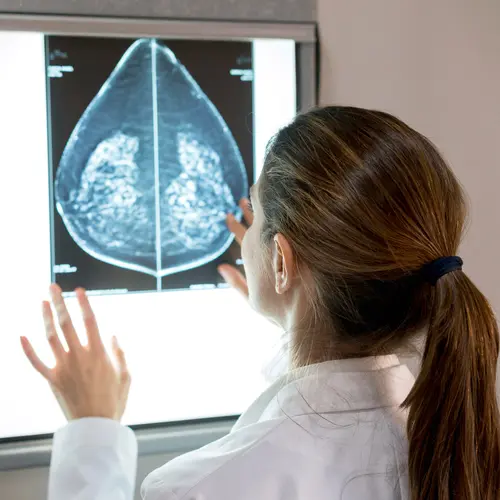
Brooke Shields was born in the limelight. With a modeling career that began in infancy and leading film roles quickly following, her face and name are known worldwide. Today, as the actor, author, entrepreneur, and mom of two strides boldly toward her next decade of life, that spotlight shows no signs of dimming.
Most recently, Shields can be seen showing off her comedic chops as star of the Netflix film Mother of the Bride. But she’s also been hard at work off camera, homing in on the unique needs and desires of women over 40 through conversation and innovation.
“For some reason, society thinks of this era of life as being all about menopause and being at the end of things,” Shields says. “You hear words like ‘dry’ or ‘tired’ or ‘over,’ and it all creates a message of giving up. But personally, I feel more confident in all areas of my life at this age. So I decided to go to the community to see if I was the only one experiencing this disconnect.”
She started an online forum called Beginning is Now where women could talk openly and honestly about what they want their lives to look like after 40.
“What came out of it was extraordinary,” Shields says. “So many women were feeling misrepresented and overlooked, like their value had been diminished by their chronological age, even though they felt like they had so much to offer.”
Three years later, the group has evolved and grown to a following of over 2 million, inspiring relationships and empowerment, as well as serving as an incubator for a line of hair and scalp health solutions formulated specifically for women 40 and older called Commence.
“In French, commence means ‘to begin,’” says Shields. “To me, it’s a word of incredible promise because it allows more to happen. And that’s what we want to ask women in this phase of life. What are you beginning? There’s growth, there’s excitement, there’s change in beginnings.”
Changing the Narrative
Shields says she came into perimenopause totally unaware of what was in store. Any mention of symptoms she had was met mostly with a wink and a nudge and not much more.
“People would say things like, ‘Oh, must be that time!’ like we all understood the subtext,” Shields says. “And when I talked to doctors, I found out that they weren’t learning much about it in medical school, either. So if it’s not something we discuss, and then when we do bring it up it’s this terrible liability, that means it’s time to start changing the narrative.”
The ability to change a narrative is a hard-won skill for Shields. Her struggle with postpartum depression after the birth of her daughter Rowan in 2003 inspired a vulnerable memoir where Shields wrote openly about the pain of—and way forward through—an experience that many women faced but rarely discussed.
“It’s the same reason I ended up writing about [my postpartum depression],” she says. “No one was talking about it. So again, I thought, ‘I cannot be the only female in the world ever to have experienced menopause symptoms.’ The more I looked at it, the more I realized that people are ashamed. And the messaging out there is that we should be.”
Meanwhile, perimenopause causes uncomfortable and sometimes debilitating symptoms for millions of people, and often little understanding of how to handle them. Shields says her hot flashes, for example, tended to come on most intensely in moments of heightened anxiety or pressure, and they were overwhelming. “You feel like you’re dying,” she says.
A gynecologist told her about bioidentical treatments that could help replace some of the lost estrogen in her body to “get her over the hump.” For Shields, this was a solution.
“I can’t say it’s what anybody should or should not do, but for me, it was what worked,” she says. “I thought I would have to suffer through it, but there are alternatives. There’s more choice involved in this era of our lives than ever before, and that information isn’t always disseminated.”
More Than Menopause
By definition, menopause means “the ceasing of menstruation.” What’s frustrating about the current status quo, says Shields, is that society tends to use this small slice of the human experience to define her and others her age.
But Shields sees this era of life as the grand culmination of experiences, like the spokes that make up a wheel. For her, each spoke has revealed itself at its own respective time: first a professional spoke, then an academic one, then a comedic one. Then the spoke of motherhood was unveiled, and so on.
“It always felt compartmentalized, but now it’s as if the whole wheel is here, and it’s ready to roll forward. You’re at this place where anything is possible, and you’re no longer tied by biology, you’re no longer restricted by the same kind of social norms that may have been so important to you in your younger years. And what’s exciting about that is that this, for us, is a new beginning.”
It’s the message Shields hopes her daughters—now 21 and 18—glean from watching her and her peers navigate their later years: yes, menopause is part of getting older, and we should be talking about it, but also, more is coming.
“They see women in this age celebrating each other and working with each other, living non-diminished lives of vitality and vibrancy, claiming seats at the table, and I want them to know that’s what this period of time is—it’s not all menopause,” Shields says. “It’s just one tiny little piece of a whole, rich, exciting picture.”

